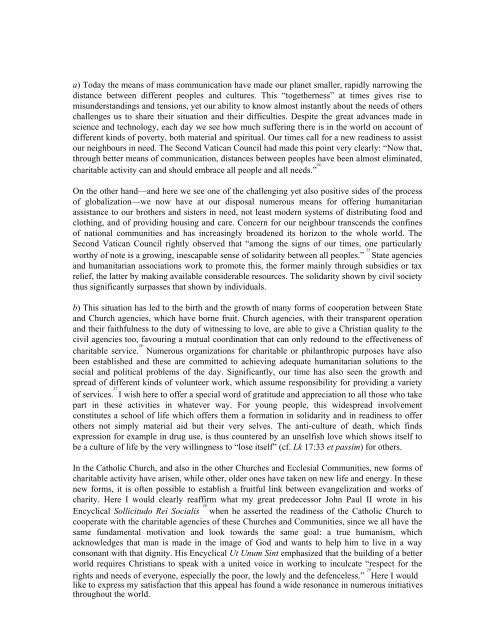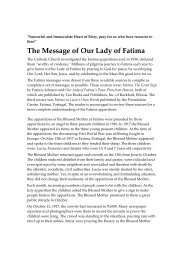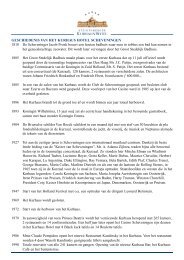God Is Love - Beeldbibliotheek
God Is Love - Beeldbibliotheek
God Is Love - Beeldbibliotheek
- No tags were found...
Create successful ePaper yourself
Turn your PDF publications into a flip-book with our unique Google optimized e-Paper software.
a) Today the means of mass communication have made our planet smaller, rapidly narrowing thedistance between different peoples and cultures. This “togetherness” at times gives rise tomisunderstandings and tensions, yet our ability to know almost instantly about the needs of otherschallenges us to share their situation and their difficulties. Despite the great advances made inscience and technology, each day we see how much suffering there is in the world on account ofdifferent kinds of poverty, both material and spiritual. Our times call for a new readiness to assistour neighbours in need. The Second Vatican Council had made this point very clearly: “Now that,through better means of communication, distances between peoples have been almost eliminated,charitable activity can and should embrace all people and all needs.” 24On the other hand—and here we see one of the challenging yet also positive sides of the processof globalization—we now have at our disposal numerous means for offering humanitarianassistance to our brothers and sisters in need, not least modern systems of distributing food andclothing, and of providing housing and care. Concern for our neighbour transcends the confinesof national communities and has increasingly broadened its horizon to the whole world. TheSecond Vatican Council rightly observed that “among the signs of our times, one particularlyworthy of note is a growing, inescapable sense of solidarity between all peoples.” 25 State agenciesand humanitarian associations work to promote this, the former mainly through subsidies or taxrelief, the latter by making available considerable resources. The solidarity shown by civil societythus significantly surpasses that shown by individuals.b) This situation has led to the birth and the growth of many forms of cooperation between Stateand Church agencies, which have borne fruit. Church agencies, with their transparent operationand their faithfulness to the duty of witnessing to love, are able to give a Christian quality to thecivil agencies too, favouring a mutual coordination that can only redound to the effectiveness ofcharitable service. 26Numerous organizations for charitable or philanthropic purposes have alsobeen established and these are committed to achieving adequate humanitarian solutions to thesocial and political problems of the day. Significantly, our time has also seen the growth andspread of different kinds of volunteer work, which assume responsibility for providing a varietyof services. 27 I wish here to offer a special word of gratitude and appreciation to all those who takepart in these activities in whatever way. For young people, this widespread involvementconstitutes a school of life which offers them a formation in solidarity and in readiness to offerothers not simply material aid but their very selves. The anti-culture of death, which findsexpression for example in drug use, is thus countered by an unselfish love which shows itself tobe a culture of life by the very willingness to “lose itself” (cf. Lk 17:33 et passim) for others.In the Catholic Church, and also in the other Churches and Ecclesial Communities, new forms ofcharitable activity have arisen, while other, older ones have taken on new life and energy. In thesenew forms, it is often possible to establish a fruitful link between evangelization and works ofcharity. Here I would clearly reaffirm what my great predecessor John Paul II wrote in hisEncyclical Sollicitudo Rei Socialis 28 when he asserted the readiness of the Catholic Church tocooperate with the charitable agencies of these Churches and Communities, since we all have thesame fundamental motivation and look towards the same goal: a true humanism, whichacknowledges that man is made in the image of <strong>God</strong> and wants to help him to live in a wayconsonant with that dignity. His Encyclical Ut Unum Sint emphasized that the building of a betterworld requires Christians to speak with a united voice in working to inculcate “respect for therights and needs of everyone, especially the poor, the lowly and the defenceless.” 29 Here I wouldlike to express my satisfaction that this appeal has found a wide resonance in numerous initiativesthroughout the world.












